Does Brisbane City Council allow people to live in tiny houses on wheels (and could this change)?
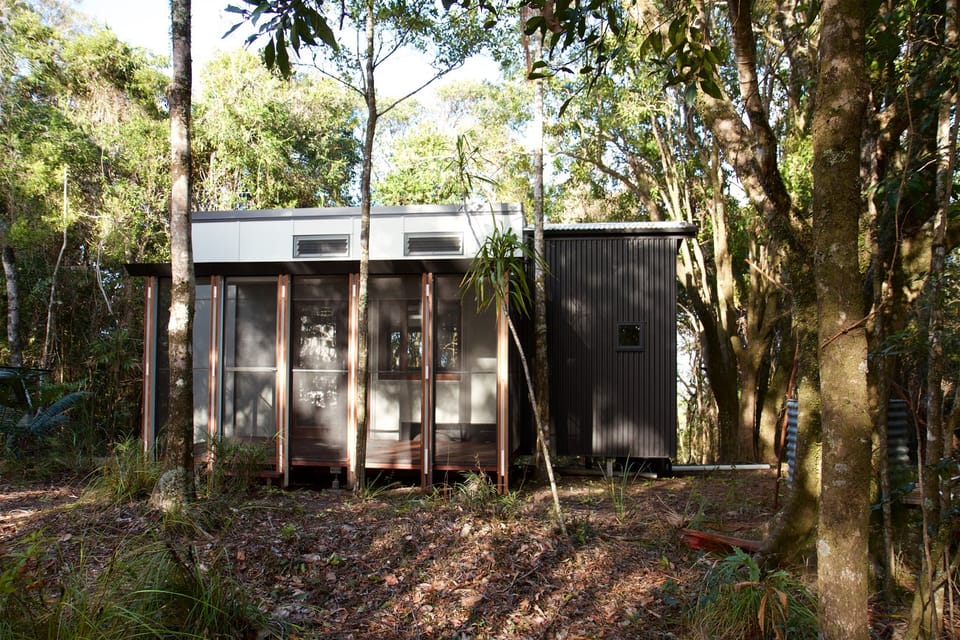
There’s still significant confusion about whether tiny houses on wheels are allowed within the Brisbane local government area, and the council itself still hasn't published clear info on its website. So here's an overview...
This information is based on my own experience and research (including several lengthy conversations with council planners). I’m not claiming to be an all-knowing expert on the matter. However I hold a law degree (helpful for interpreting the various local laws) and I previously worked for 7 years as an elected city councillor on Brisbane City Council. For those who are wondering, I currently live on a small houseboat in Brissie.
I should stress that I’m not a practising property lawyer or urban planner, and the following should not be treated as formal legal advice.
Note that this overview:
- relates specifically to caravans and tiny houses on wheels
- only applies to Brisbane City Council (even immediately neighbouring local government areas like Redland City Council have different approaches)
- is current as of June 2024, but could go out of date if either the council or state government change their rules at some point – Queensland’s Planning Minister publicly stated in November 2023 that the government was ‘seeking advice’ from the Department of State Development, Infrastructure, Local Government and Planning (DSDILGP) about how to regulate/plan for portable tiny homes, but I don’t think anything is likely to change in a hurry at the state level (more on that below)
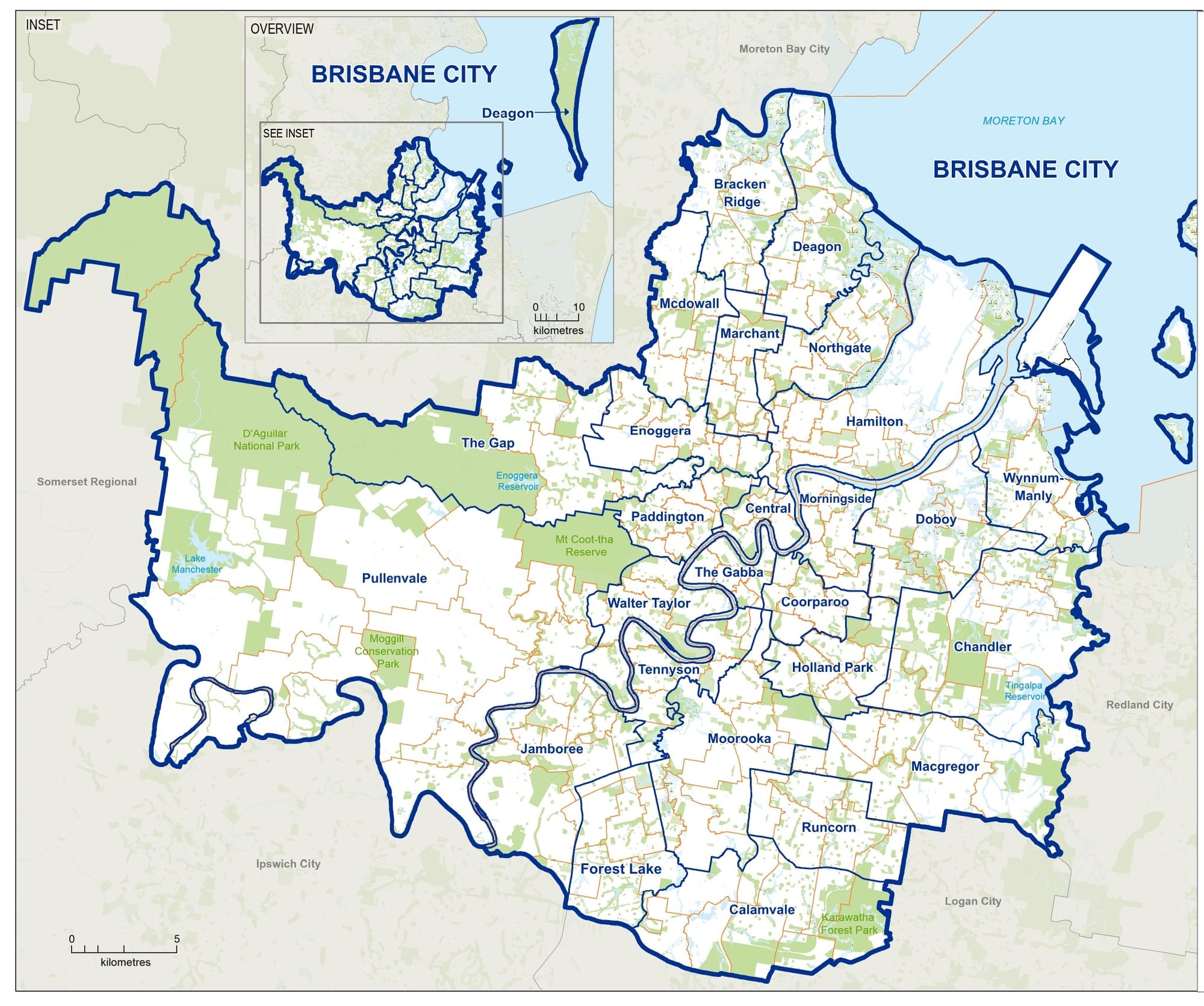
BCC is comparatively hands-off about caravans/temporary moveable dwellings
With the exception of regulating actual caravan parks (discussed below) Brisbane City Council seems to differ from many Queensland council regions in that it doesn’t place direct limits on how long someone can live in a caravan (or, by extension, a tiny house on wheels) in a private yard. There are plenty of households across Brissie where people have been living in caravans and motorhomes parked in yards and driveways for years without issue.
And no, there are no enforceable rules saying you have to be related to everyone else who lives on your block, or that caravans in backyards can only be rented out to relatives.
Is it ‘building work’/a structure?
The moveable nature of tiny houses on wheels means that in many jurisdictions – including Brisbane – they avoid building regulations relating to structures, and are treated like caravans.
Between State Government legislation – such as the Building Act 1975 (QLD) – and Brisbane City Council local laws and planning codes, there are heaps of rules controlling what kinds of fixed structures and non-fixed structures are allowed in different parts of the city and what standards they need to be built or installed to. However, none of these rules apply if your portable dwelling doesn’t meet the definition of ‘building work.’
The definitions in the Building Act 1975 are a little vague. But happily, my good friends Andrew and Lara (of Nobel Carter Architects) and tiny house advocates ESC Consulting have done a lot of the hard work for the rest of us. Lara and Andrew built and then lived in a tiny house on wheels in Red Hill, and back in 2016, Brisbane City Council fined the owners of the block they were living on for undertaking building work without a development permit. With help from ESC, they had the courage to appeal this council Enforcement Notice, and a ruling was made by the Building and Development Dispute Resolution Committee.
You can find the 7-page ruling at this link, and an ESC Consulting article about the matter at this link.
Basically, the committee’s finding was that this particular tiny house on wheels did not meet the definition of a structure/building as defined under the Queensland Building Act 1975, because it wasn’t permanently fixed to the site and could be easily relocated.
Among other things, they took into account the fact that it was built on a trailer registered with the Department of Transport and Main Roads, that it was only connected to mains water and power via a garden hose and an extension cord, and that neither the tiny house nor the adjoining deck had fixed foundations – both were just ‘resting on their own weight.’ Even the hose to the greywater gravel pit wasn’t considered a problem, as it could be disconnected quickly and easily.
So in Brisbane, your caravan or tiny house on wheels should only trigger the need for building permits etc if you’ve got lots of extra infrastructure (I’m thinking like phone/internet cables or permanent underground plumbing) that connect it more permanently to the site, or if it clearly isn’t relocatable anymore (e.g. the caravan’s tyres have been removed and it’s a long way from being roadworthy).
In the Queensland court cases and committee hearings that have unpacked the definitions of ‘structure’ and ‘building,’ there seems to be a distinction between registered vehicles versus other moveable structures that aren’t ‘fixed’ to the site. The 2020 District Court case of Logan City Council v Brookes [2020] QDC 24 confirmed that shipping containers did count as ‘structures’ and that placing shipping containers on a site could constitute building work (even if they weren't fixed structures).
So the fact that caravans/tiny homes on wheels are registered trailers that can be towed on the road ends up being very relevant to avoiding all the usual council and state government rules about building work and assessable development.
What other rules do you need to watch out for?
Another area of uncertainty right now is whether your compost toilet and greywater treatment systems must comply with the requirements in the Queensland Plumbing and Wastewater Code and the Plumbing and Drainage Act 2018. My read of the situation is ‘no,’ because the relevant provisions only seem to apply to fixed structures, whereas the holding tanks/toilets etc. in a caravan or tiny house on wheels are part of the vehicle rather than being permanently fixed to the land itself.
I should note that some consultants might disagree on this front. I don’t believe there have been any recent, definitive court rulings on this question to clarify the situation (please email me if you know more).
There are also more general environmental and waste management regulations at the local and state levels that you could fall foul of if you have a really crappy waste management system (e.g. you can’t discharge greywater into sensitive environmental areas, you can’t discharge untreated sewage anywhere etc.).
Yes, it seems you technically can live in a caravan or tiny house on an empty block of land
Many Brisbanites are now living long-term in tiny houses on wheels on sites where another dwelling already exists. The trickier question is whether you can buy/rent a vacant block of land and live on it in an off-grid trailer dwelling without requiring development applications and other council approvals.
When I called Redland City Council about this, their answer was a more definitive ‘no,’ although I know of people who still do it (if no-one complains to the council, you’d probably get away with it for years). The planners I talked to said that specific rules under Redland's Subordinate Local Law No. 1.19 (Placement of Shipping Containers, Railway Carriages and other Objects on Land) 2018 strictly controlled when you can leave objects like shipping containers and portable tiny houses on vacant blocks of land (even if they don't meet the definition of a fixed structure). Personally I think it’s debatable whether that Subordinate Local Law would apply to registered trailers/vehicles trailers (as distinct from shipping containers and other moveable structures). It would be very simple for that council to amend the definitions in this subordinate local law to clarify that ‘other objects’ doesn’t include registered trailers. Maybe someone should write to the new mayor about that.
In contrast, Brisbane City Council doesn’t have any similar local law. It appears that technically, there isn’t currently any specific rule in Brisbane preventing someone from living in a registered vehicle on a vacant block of land. Again: other kinds of portable dwellings that aren't on registered trailers (e.g. dongas) would require approvals.
Recently I spent a lot of time on the phone to Brisbane City Council officers from both the City Planning and the Compliance and Regulatory Services teams to unpack this. Every officer I talked to eventually agreed that parking a vehicle (including a trailer home) on a vacant block of land would not meet the definition of building work, and none of us could find anything in the council’s city plan that appeared to rule out living on vacant land in some kind of trailer/vehicle (as long as greywater and sewage is being managed safely).
If you buy a vacant block, park an off-grid tiny house on it and start living there, the only possible issue I could find was that the council might claim you’re running a caravan park. In Brisbane, there’s a permit system for operating a caravan park which is set out under the Caravan Parks and Relocatable Home Parks Local Law 2000. Establishing a caravan park would likely also require a development application, and in most parts of the city, the development assessment team are going to have multiple grounds for refusing to approve a caravan park.
My reading of the definitions is that if you’re renting out discrete sites on your block of land for multiple caravans/tiny homes, or if a larger number of co-owners are all living in relocatable homes on a vacant block they own and share, this could fit the council’s broad definitions of a caravan park/relocatable home park (and be subject to the associated regulations). Conversely, if a single household of friends or family members is just living in one or two portable dwellings on a vacant block of land that they own, or on a vacant block that they are renting in its entirety (as opposed to renting a discrete site within the block), I think it would be very hard for the council to successfully argue that this counts as a caravan park.
So while there’s no explicit rule saying you can live in a tiny house on wheels on a vacant block, it seems there’s also no rule (or combination of rules) that prevent it. The main barrier to more people living in tiny houses on wheels in Brisbane is not council regulation, but simply the cost of and access to land in a context where developers and investors love to hoard vacant blocks.
It’s all about complaints
Local councils generally don’t proactively go looking for issues on private land. If no-one complains, you can get away with a lot. The flipside of this is that if neighbours – particularly neighbours who are more privileged/litigious/well-connected – do complain, some BCC enforcement officers can become very motivated to look for minor technical breaches to sting you over. Many Brisbane City Council officers haven’t been trained to understand the distinction between structures and registered vehicles explained above, and might tell you that you need a building approval/development application for your tiny house on wheels even if you actually don’t.
The standard scripts used by the council’s call centre workers are particularly confusing for anyone who rings up seeking advice. But being able to point to Andrew and Lara’s success with the Building and Development Dispute Resolution Committee is very helpful if an inspector does ever rock up.
When is the council/state government going to get around to clarifying the rules?
Personally, I think the grey area might be as good as it gets. In some local government areas (e.g. Cairns Regional Council), councils are already spelling out clearer rules about tiny houses on wheels. Generally speaking, these new frameworks are more restrictive than the current ambiguous status quo in Brisbane. So I don’t think tiny home advocates should be pressuring BCC to introduce updated regulations right now. New regulations are almost certainly going to make it harder to live in a tiny house on wheels than it currently is in the Brisbane City Council area.
Being such a large and complex local government entity, BCC is generally much slower at introducing and updating local laws than smaller councils are, and only does so when under sustained pressure. Two scenarios that might at some point lead to new regulations are if commercial developers and major real estate investors start advocating for tighter rules because tiny houses challenge their business models (we're a long way from this at present), or if tragedy struck and someone living in a tiny house/caravan died in some kind of accident (e.g. flood, fire, roof collapse) and the public started lobbying for higher safety and design standards.
Once government authorities formally recognise that people are living permanently in tiny homes, they’ll feel obliged to ensure those homes are safe and high-quality by treating them more like fixed structures. But most tiny homes currently being manufactured in Australia are never going to come close to the building standards that presently apply to other small, fixed-structure dwellings in Queensland. The State Government has probably worked this out, which is why even though Premier Steven Miles (back when he was Planning Minister) said he would ‘take advice,’ he essentially confirmed he wanted to leave any regulation up to individual local councils.
Having served as a local politician for seven years, I know enough about how the two major parties operate and how risk-averse the public service has become. If the LNP-led Brisbane City Council or the Labor-led State Government are in charge of creating a new regulatory framework for tiny houses, it’ll be an overly-restrictive one that suits the interests of big developers, not ordinary people. But the more people there are living in tiny homes on wheels, the harder it becomes politically for governments to introduce rules that would force residents out.
Maybe at some future time when more progressive, sustainability-focussed parties like the Greens have more power, it might be possible to get a tiny house regulatory framework introduced at the state level that strikes a good balance in ensuring trailer homes are safe, well-built and sensibly located, without overly-burdensome regulations that drive up costs and hassles.
For now, it seems you can lawfully live in a tiny house on wheels on a private property in Brisbane without requiring any kind of council approval or permit. But there’s always a chance that rules could be tightened at some point in future.

Thanks for reading! I wasn't paid by anyone to produce this article. I've taken the time to compile and publish this information because I think it's helpful for it to be freely available to the general public. If you appreciate resources like this being widely accessible and want to support me to produce more of them, please consider signing up to my newsletter...
If you see anything in this article that you believe to be incorrect, please email me at office@jonathansri.com and I’ll update accordingly. For more on compact living, check out this piece about how living on an 'off-grid' houseboat has made me feel more connected to the world around me.
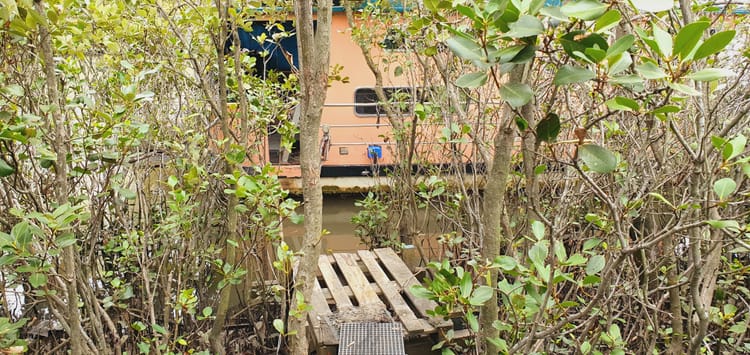
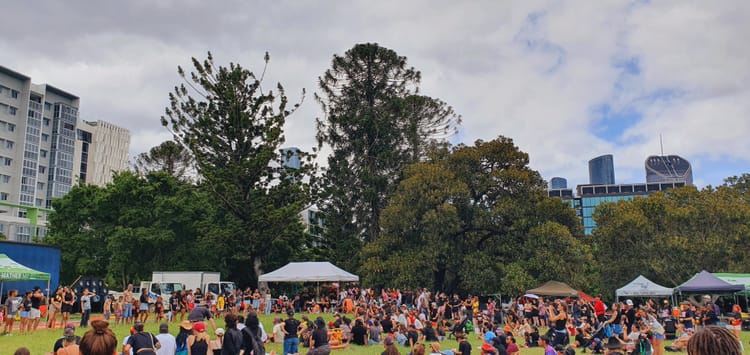

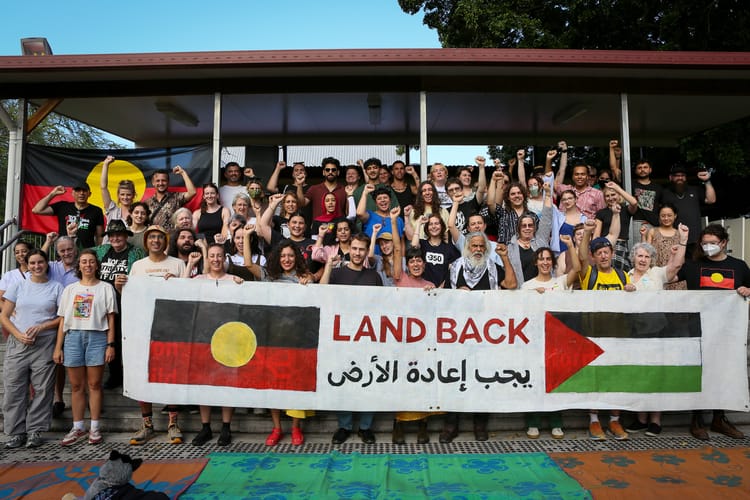
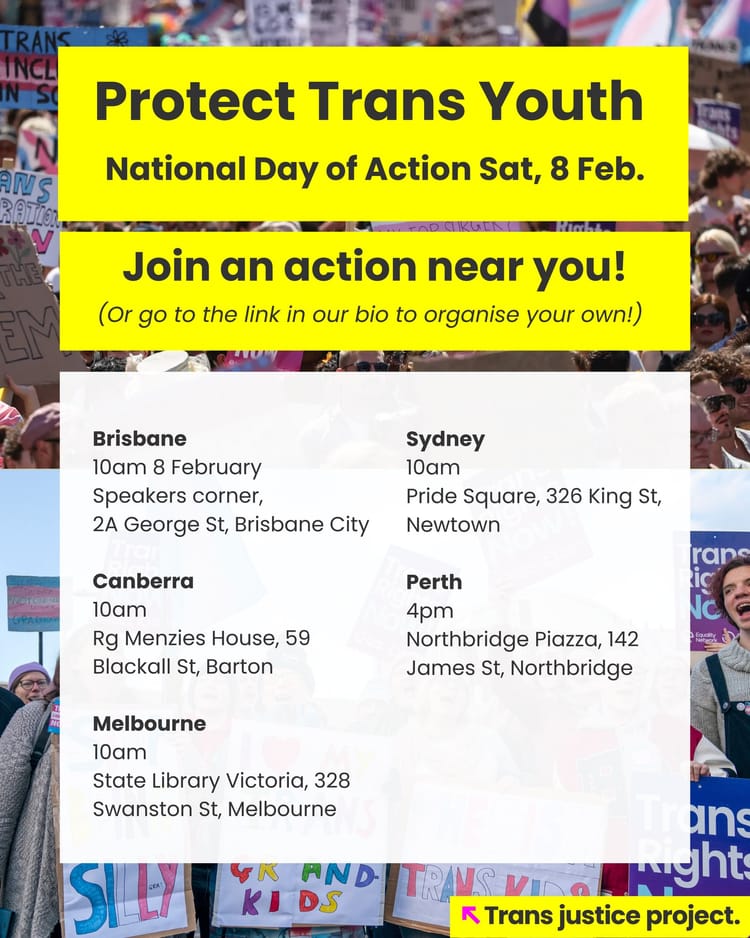
Member discussion